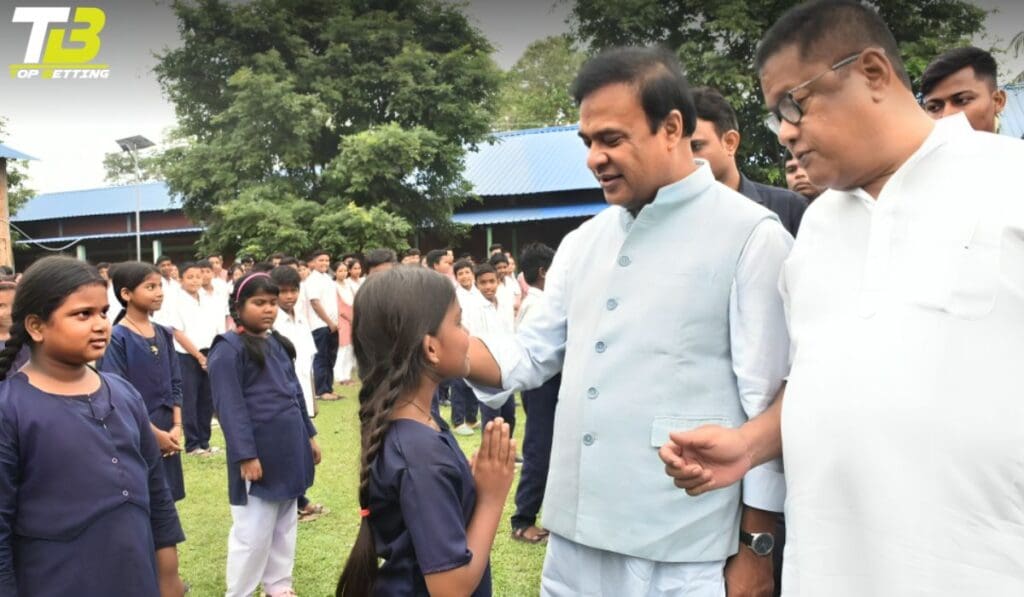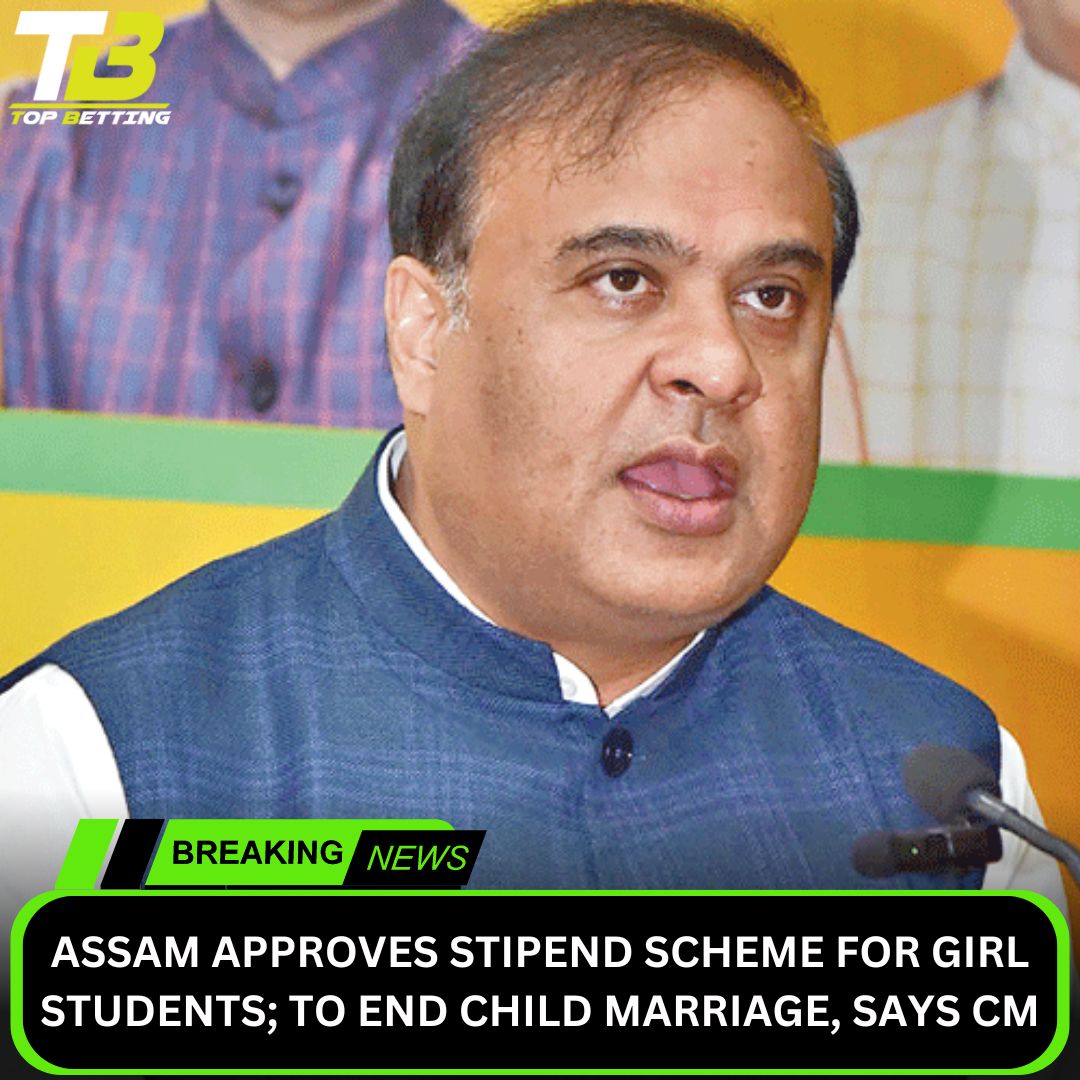
Assam Launches Stipend for Girls to Combat Child Marriage
In a groundbreaking move aimed at empowering young women and tackling the pressing issue of child marriage, the government of Assam has recently approved a comprehensive stipend scheme for girl students. This innovative initiative, announced by Chief Minister Himanta Biswa Sarma, promises to revolutionize educational opportunities and transform the lives of countless girls across the state.
Unveiling the Mukhya Mantri Nijut Moina (MMNM) Scheme
The Mukhya Mantri Nijut Moina (MMNM) scheme, as it has been aptly named, is set to provide monthly financial benefits to girl students at various stages of their educational journey. The scheme’s primary objective is to incentivize and empower girls to continue their studies, ultimately serving as a deterrent against the practice of child marriage.
Targeted Beneficiaries and Stipend Amounts
Under the MMNM scheme, the Assam government has outlined the following stipend structure:
- Girls who have passed Class 10 and enrolled in Class 11 will receive ₹1,000 per month (excluding summer vacation) for the next two years until they complete their Class 12 board exams.
- Students who have finished Class 12 and enrolled in degree courses will be entitled to a monthly stipend of ₹1,250 for the subsequent three to four years, covering their graduation.
- For those who have enrolled in post-graduation or Bachelor of Education (B.Ed.) programs, the stipend amount is set at ₹2,500 per month until the completion of their respective courses.
Tackling Child Marriage through Financial Empowerment
The MMNM scheme is a strategic move by the Assam government to address the persistent issue of child marriage in the state. By providing a steady stream of financial support, the scheme aims to incentivize families to delay the marriage of their daughters and instead focus on their educational and personal development.
Estimated Beneficiaries and Budgetary Allocation
According to official estimates, the MMNM scheme is expected to benefit around one million girl students in Assam. The government has allocated a substantial budget of ₹300 crore for the first year of implementation, with a projected five-year expenditure of approximately ₹1,500 crore.
Eligibility Criteria and Exclusions
To ensure the scheme’s effectiveness, the Assam government has outlined specific eligibility criteria and exclusions. Only unmarried girl students who have passed Class 10 and are enrolled in subsequent educational levels are eligible to receive the stipend benefits. Married students, children of ministers, legislators, and meritorious students already receiving other state benefits are excluded from the scheme.
Promoting Discipline and Academic Performance
The MMNM scheme also incorporates measures to incentivize positive behavior and academic performance among the beneficiaries. Students involved in ragging, disciplinary issues, or those with poor attendance or academic performance may face the suspension of their stipend benefits.
Anticipated Impact on Enrolment and Education
The Assam government is confident that the MMNM scheme will have a transformative impact on the state’s educational landscape. They expect an additional 200,000 girl students to enroll in educational institutions this year, as the financial support provided by the scheme will enable more families to prioritize their daughters’ education.
Ensuring Effective Implementation and Monitoring
To ensure the successful implementation and monitoring of the MMNM scheme, the Assam government has put in place robust mechanisms. This includes the direct transfer of stipend amounts to the beneficiaries’ bank accounts, as well as the implementation of strict eligibility criteria and performance-based assessments.
Aligning with the Government’s Commitment to Girls’ Education
The MMNM scheme aligns seamlessly with the Bharatiya Janata Party government’s broader commitment to empowering girls and ensuring their access to quality education. Earlier this year, Chief Minister Himanta Biswa Sarma had pledged that the state government would take responsibility for educating girl students up to the post-graduate level.
Combating Child Marriage through a Multifaceted Approach
The MMNM scheme is part of the Assam government’s comprehensive strategy to tackle the issue of child marriage. Alongside this initiative, the state has also carried out several high-profile campaigns and crackdowns under the Prohibition of Child Marriage Act and the Protection of Children from Sexual Offences Act, resulting in the arrest of thousands of offenders.
Fostering Societal Change and Empowerment
By providing financial incentives and removing barriers to education, the MMNM scheme aims to bring about a significant shift in societal attitudes towards girls’ education and empowerment. This initiative has the potential to inspire other states to adopt similar measures, ultimately contributing to a more equitable and empowered future for young women across India.

Conclusion
The Assam government’s approval of the Mukhya Mantri Nijut Moina (MMNM) scheme represents a momentous step towards ensuring the educational and personal development of the state’s girl students. This landmark initiative not only addresses the pressing issue of child marriage but also serves as a powerful catalyst for social transformation, empowering young women and unlocking their boundless potential. As Assam embarks on this transformative journey, the MMNM scheme stands as a shining example of the government’s commitment to creating a more inclusive and equitable society.










